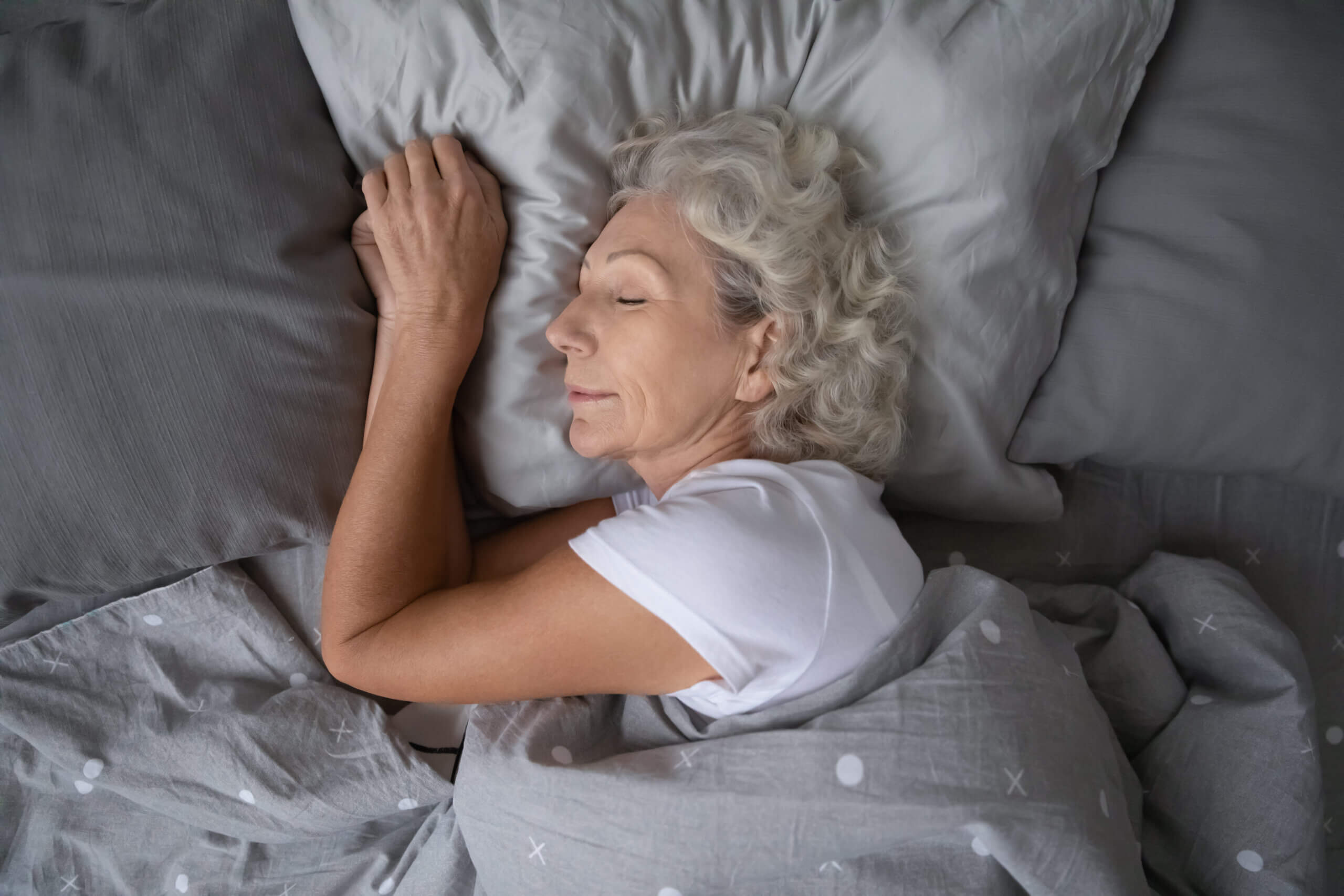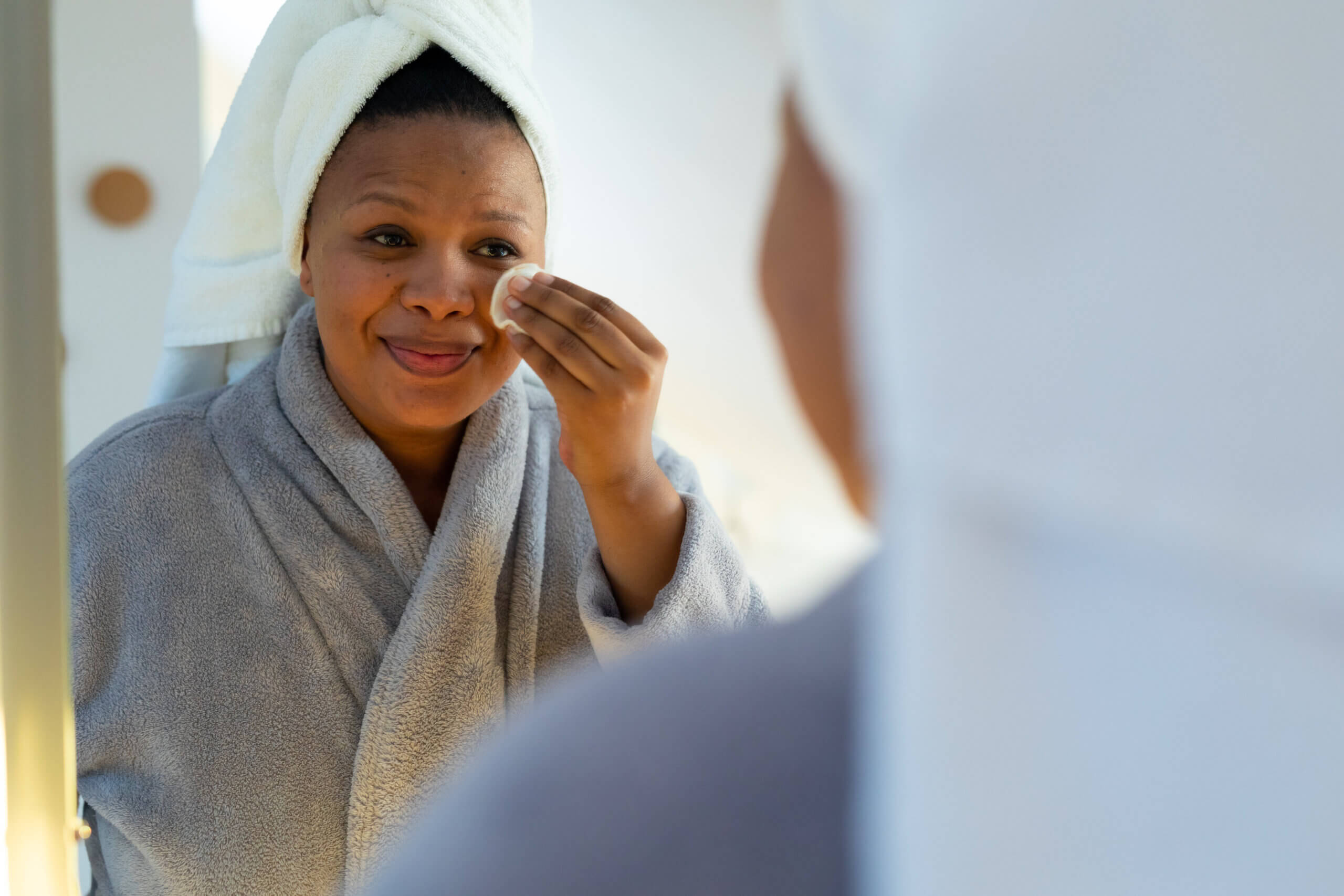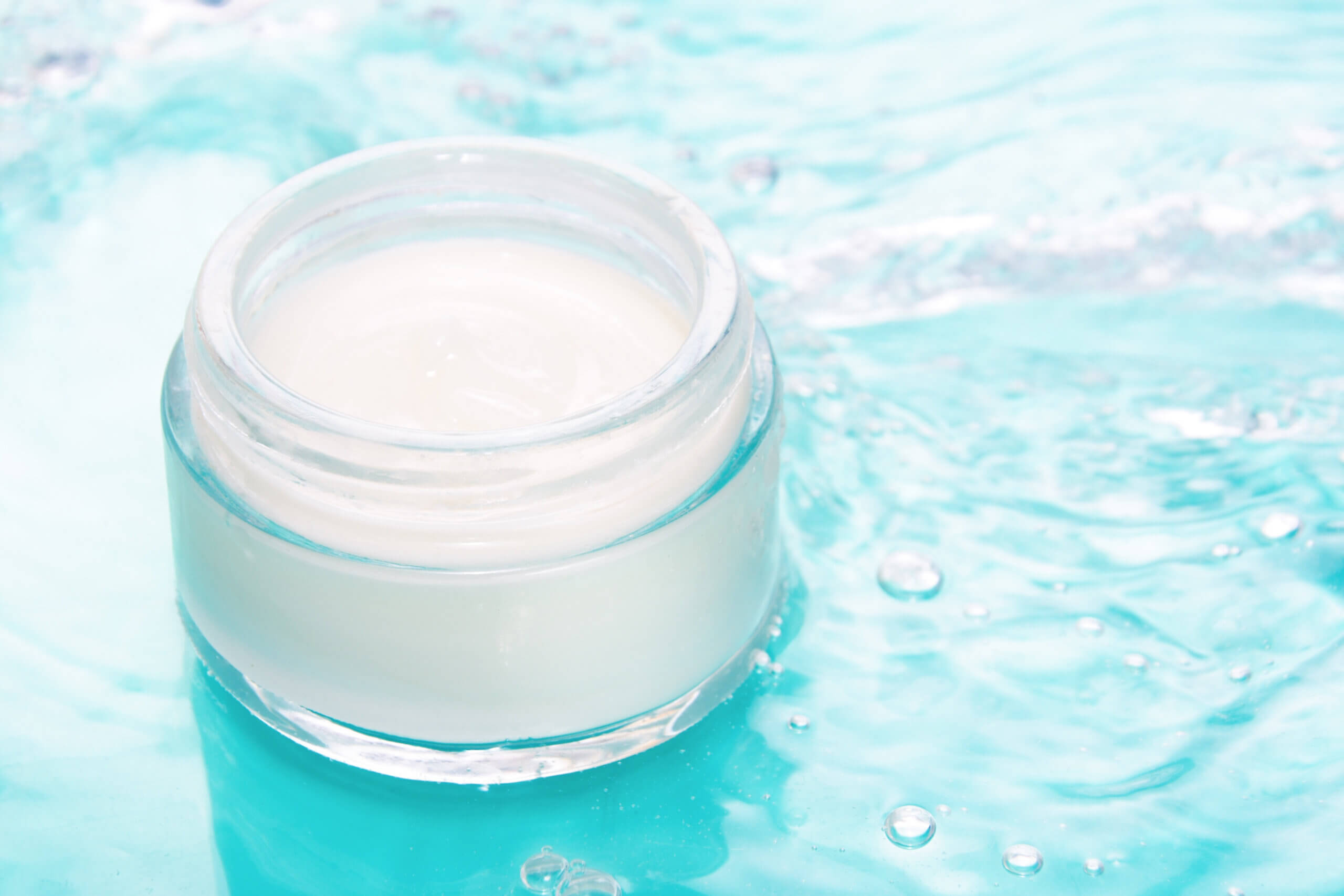Your skin takes on a lot of stress throughout the day— heat, cold, wind, sun, pollution, etc. As you might imagine, this takes a toll over time and can lead to skin that looks older and duller than you would like or feels dried out and irritated.
The good news is that nighttime is the perfect restorative time for your complexion and helps combat daytime stressors. BUT that’s only true if you aren’t sabotaging your efforts by making common skin care mistakes.
These mistakes may not seem like a big deal at first glance, but like other bad habits, their effects build up over time and can be detrimental. So, to help you perfect your nightly skincare routine, here’s a look at why sleep is so good for your skin and the top mistakes to avoid.
Why Nighttime Can Be the Best Time of Day for Your Skin

Sleep is when your body does a lot of its deep repair work. This includes regenerative activity deep within your skin that helps to keep it healthy and youthful-looking.
In fact, you’ve probably noticed that missing out on sleep just a few nights in a row often shows up in your skin as dark circles, puffiness, more noticeable wrinkles, and so on.
But to look at it in a positive way, the restorative effects of sleep make evening an ideal time to apply nourishing and rejuvenating ingredients to your skin. They get to work mostly undisturbed all through the night and make the natural repair work your body is already doing even more beneficial.
Plus, you’re less likely to sweat skincare out during the night, and the ingredients aren’t disrupted by UV radiation from the sun.
The bottom line is that a nightly skincare regimen can be incredibly effective— as long as you avoid some common mistakes.
Common Skin Care Mistakes to Avoid at Night
Not Getting Enough Sleep
One of the best things you can do for your complexion at night doesn’t involve a single product. It’s simply getting the recommended 7-8 hours of quality sleep each night.
If you read the section above, you already know that sleep is a time of important repair work for your skin. Losing a few nights’ sleep can show up in your skin right away (dark circles, bags, etc.), but the biggest damage happens over time.
Research has shown that sleep deprivation actually increases signs of skin aging. This means more fine lines and pigmentation (dark spots) as well as reduced elasticity. Plus, lack of sleep is also linked to reduced skin barrier function, which means your skin is more likely to dry out and is more susceptible to external stressors.
All that to say, you should take your “beauty rest” seriously— and perhaps avoid shoving your face in your pillow at night because this can also contribute to wrinkles and facial lines.
Not Removing Your Makeup Completely

If you’re ready to fall into bed after a long day, it can be tempting to quickly swipe at your makeup and call it good enough. And while this is better than not removing your makeup at all, it’s still problematic for your skin.
Even though you can’t see it, makeup leaves a residue behind if it isn’t thoroughly cleaned off. This residue can clog your pores and/or cause dead skin cells to build up. Over time, you’ll probably notice more breakouts or simply dull, lifeless-looking skin.
So, even though it might take you an extra minute or two, be sure you get all the makeup off your skin before heading to bed. This goes for eye makeup too, because the skin around your eyes is especially sensitive to irritation.
Not Cleansing Your Face (Or Using the Wrong Cleanser)
Whether you wear makeup or not, cleansing your face at night is key to getting rid of dirt, debris, and dead skin cells that have accumulated during the day. In fact, one of the most common skin care mistakes is thinking that morning is the best time to cleanse, even though dirt, etc. doesn’t build up much overnight.
(Note: Cleansing evening and morning is best for some skin types. Once a day— at night— is fine for others.)
Just as important as cleansing your skin at night, is using the right cleanser.
Many cleansers are “stripping”, meaning they get rid of healthy, natural oils that your skin needs. This can lead to dryness and irritation over time, and some studies have shown that common soap chemicals even weaken skin barrier function and remain on your skin after rinsing.
Ideally, you want to use a moisturizing cleanser that doesn’t contain harsh ingredients (like this gentle, anti-aging cleanser from Purity Woods).
Over Exfoliating Your Skin
Exfoliation is important for healthy, young-looking skin. It gets rid of dead skin cells, which encourages skin cell turnover/regeneration, helps unclog pores, and brightens your complexion.
However, in this case, more is not necessarily better.
If you exfoliate too often or too harshly, you can actually disrupt your skin barrier. This leads to irritated, red-looking skin and sensitivity— and it could make your skin more likely to react to other products you apply.
For most skin types, exfoliating 2-3 times a week is ideal. Those with sensitive skin may find that once a week (or even less) is better for them. Some signs you’re overdoing it include dryness, lots of flaking (or peeling), and a burning sensation.
Using Electronic Devices in Bed

Here’s another example of how not all nighttime skin care mistakes involve your skincare routine. In this instance, using your smartphone or tablet in bed (a common activity) could be contributing to older-looking skin.
How?
Well, tablets, smartphones, and other devices like televisions all emit blue light. Blue light has an energizing effect, which is a good thing when you are naturally exposed to it via sunlight. However, too much exposure in the evening or at bedtime can disrupt your sleep cycle— and we’ve already covered how critical sleep is for your skin.
Beyond this, blue light itself can penetrate into the deeper layers of your skin, potentially even more so than UV rays. Because of this, it’s believed to contribute to skin aging, although researchers still aren’t sure to what extent.
Regardless, for the sake of both your beauty rest and your complexion, try to avoid using electronic devices 2-3 hours before bedtime or at least install a blue light filter on them.
Sleeping on a Dirty (or Drying) Pillowcase
Forgetting to regularly wash your pillowcase can be a disaster for your complexion. Your pillowcase absorbs oil from your skin (and hair) every time you sleep on it as well as dirt and bacteria. And while it mostly only absorbs a small amount at a time, just think how much could build up over the course of a week or more.
A dirty pillowcase is particularly detrimental to acne-prone skin, but it’s really not great for any skin type in the long run.
Along with cleansing your face before bed to cut down on dirt, bacteria, etc., try to swap out your pillowcase for a clean one every few days. (You can make it last a little longer by sleeping on both sides of the pillowcase.)
Also, consider the material your pillowcase is made of and whether it has a drying effect on your skin.
For example, organic cotton is generally a great choice for fabric, but it does wick moisture away from your skin and tends to absorb more oil. If your skin is on the dry side to start with, you might want to consider a different material, like bamboo.
Using Toxic Skincare Products
There are many cosmetics and skincare products out there that promise some kind of beauty benefit. But when you look closely at the ingredients and their effects, they are anything but beautiful.
To put it simply, not being careful about the quality of product ingredients is one of the most common skin care mistakes people make— at night and any other time of day.
You might think that just because a product has made it to the shelf, it must be safe for you to use, but that’s not always the case. In the U.S., for example, skincare companies are still allowed to use chemicals banned in the European Union (EU) and other countries over toxicity concerns.
This includes chemicals that are carcinogens, negatively affect hormones, and even ones that irritate your skin!
The only way to avoid them is by reading labels and doing your research before you buy. To do this, you can use some free tools like EWG’s Skin Deep database, and you can also find out more about the worst toxins in skincare here.
Skipping a Moisturizer

Water evaporates from your skin all throughout the day via a process known as transepidermal water loss (TEWL).
In an ideal world, this evaporation would be balanced by your body supplying hydration to your skin, keeping moisture levels even. Unfortunately, this isn’t usually how it works.
Particularly as you get older, you’ll find that your skin has a harder time holding onto moisture. A dry environment or harsh weather (especially in the winter) only makes things worse. And because daytime is when most stressors hit your skin, it usually starts feeling “parched” towards the end of a day.
(And not only is dryness uncomfortable, it’s also a common way the skin barrier gets damaged. This opens your skin up to toxins and irritation while also potentially making it look older.)
That’s why applying a moisturizer at night is critical— even if you are using a hydrating, gentle cleanser. While your skin may not feel dry right after you cleanse it, moisture will continue evaporating overnight.
To combat this, the right moisturizer will lock in hydration, nourish your skin, and help keep it feeling soft and supple.
Not Layering Your Products Correctly
You can have the best skincare products in the world, but they won’t be very effective if you apply them in the wrong order. (And surprisingly, this is another one of the common skin care mistakes people make.)
So, how do you layer products correctly?
This will depend somewhat on which specific products you are using. However, most of the time, you’ll want to cleanse your skin first and then apply other products starting with lighter-weight ones and finishing with the heaviest.
For example, you could do a quick four-step routine like this:
- Gentle cleanser
- Targeted treatment (like an eye cream)
- Serum
- Moisturizer
It’s very important that your moisturizer and any heavy oil-based products go on last. Not only do they lock moisture and other ingredients in, they would also lock any products you applied afterwards out.
Missing Out on the Best Antioxidants
You can “feed” your skin in two ways: by the food you eat and by what you apply to it topically. And when it comes to the best nutrients for youthful-looking skin, antioxidants are definitely at the top of the list.
The most critical work antioxidants do is to protect against free radicals. Free radicals are unstable molecules that can attack cells throughout your body— including skin cells— and contribute in a major way to skin aging.
By shielding you from them, antioxidants are able to minimize the effects of free radicals and help keep your skin looking younger for longer.
Now, applying natural antioxidants to your skin at night is key because you give them a good 7-8 hours (hopefully) to work uninterrupted. But the type of antioxidant(s) you focus on should be different than what you might apply in the morning.
For example, astaxanthin is a potent antioxidant that has shown photoprotective properties, meaning it helps protect your skin from UV damage. This makes it an ideal daytime skin care ingredient but perhaps not as crucial for nighttime use (though still a good option!).
On the other hand, resveratrol— another powerful antioxidant— is perfect for nighttime application. It can help fight signs of skin aging, but is more sensitive to light than other antioxidants, making it best for overnight use.
The Best Way to “Feed” Your Skin at Night
 Now that you know the top skin care mistakes to avoid at night, you can start helping your skin right away. And if you want to “turn back the clock” on mistakes you may have been making over the years, look into the Age-Defying Night Cream from Purity Woods.
Now that you know the top skin care mistakes to avoid at night, you can start helping your skin right away. And if you want to “turn back the clock” on mistakes you may have been making over the years, look into the Age-Defying Night Cream from Purity Woods.
This cream not only nourishes and moisturizes your skin, it’s also packed full of plant-based antioxidant ingredients that quickly diminish the appearance of fine lines, wrinkles, dark spots, etc. This includes organic smartweed extract, which is a little-known source of the potent antioxidant resveratrol.
The entire Night Cream formula is USDA Certified Organic, which means absolutely no toxins, synthetic ingredients, or GMOs. It’s the perfect way to lock in hydration at the end of your skincare routine and “feed” your skin while you are sleeping.
You can find out more about the Age-Defying Night Cream here. And double-check your habits to make sure you aren’t sabotaging your skin at night!


